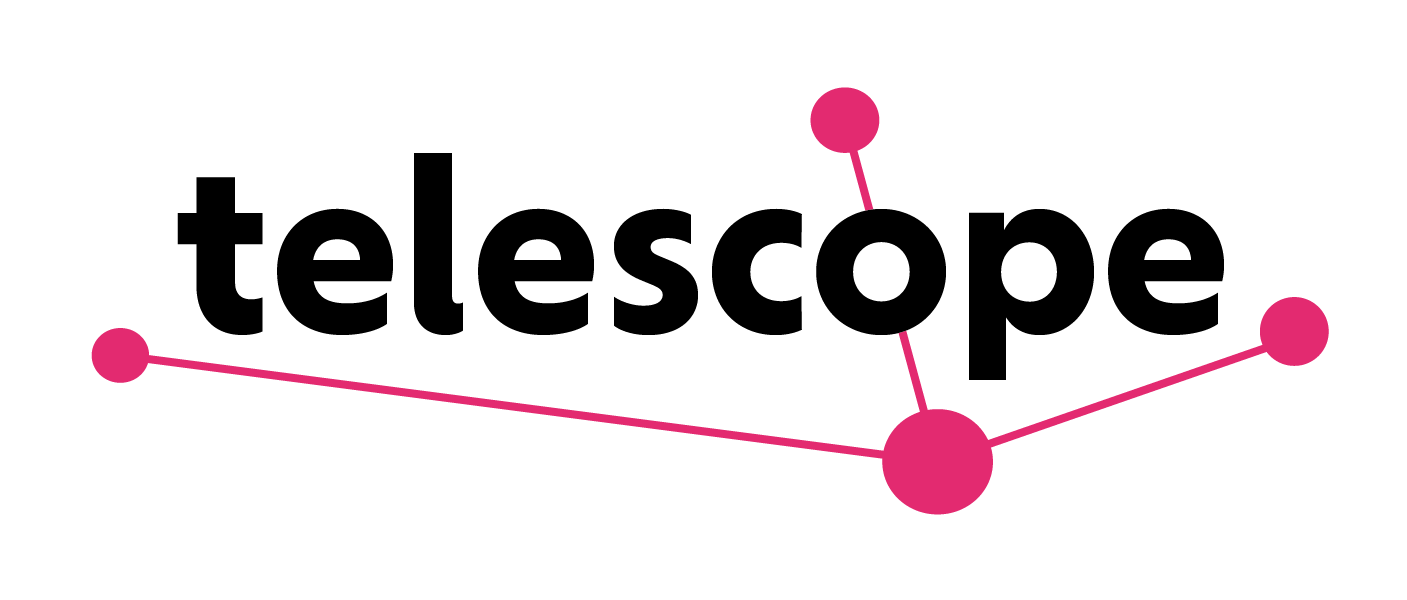How can social enterprise create change in society?
Systems change through social enterprise
At Telescope, we know that good policymaking starts with bringing the right people together. Despite best intentions from civil servants across government, there is still a gap between the policymaking corridors of Whitehall and the reality of service delivery on the ground. And there are few opportunities for the expertise and insights of frontline practitioners and the citizens they work with to be shared with policymakers in a meaningful way.
So we work to bridge that gap, running workshops and learning journeys that support social changemakers to build empathy and collaborate on policy interventions. As a social enterprise, we are structured as a for-profit business so that we can provide our services without relying on grant funding and other fundraising.
What is a social enterprise?
Social enterprises are organisations that have impact at their core, with a business model that aims to harness market demand to fund that impact. They are scalable, revenue-based businesses whose objectives nonetheless often align with those of traditional third sector and charity models. Overall, social enterprises exist to bring about positive change in society in a sustainable way, rather than to maximise shareholder profits. Many social enterprises will have additions or addendums to their company documents that limit the profits paid out to shareholders and/or directors. There are multiple ways to design and run a social enterprise, and no one definition or business model that encompasses them all.
Often, social enterprises can usefully join forces with existing organisations like charities, who have deep expertise and a strong foundation of trust with their service users, but who, because of the way they are designed, rely on grants and donation funding to exist. The social enterprise model can help to support and scale their work through carefully-designed partnerships.
Our model
The solution: a social enterprise with impact at our core, and structured as a for-profit business, positioning ourselves as a training provider and facilitator so we can charge (fairly) for our services and not rely on fundraising. This means we can scale, take our programmes and principles across the country - wherever there are open-minded, innovative policymakers who are willing to bring us in.
What is a bit unusual about our model is that we aren’t plugging an obvious sectoral gap, like More Diverse Voices tackling diversity in the communications sector, or like Appt looking to fix pain points in the health sector. We also don’t work with a specific target group of beneficiaries, like Square Circle supporting under-appreciated talent in the recruitment process, or Migrateful working with refugee communities. Instead, we work with civil servants, public sector workers, charity organisations and people with lived experience of social challenges, bringing them together to change the way policy is made. Our impact happens at three levels:
Firstly, for individual participants in our programmes. We design our programmes in such a way that participants leave with skills, knowledge and connections that they can use to engender change going forward.
Secondly, for service users at the organisations we work with, whose experience should be improved by potential changes in practice among the frontline staff.
Thirdly, for society as a whole, who should benefit from policies that gradually reflect more and more of the realities on the ground. The more programmes we can run, the more policymakers have a clearer understanding of how to design policies that work, and the more people will live fuller, better lives.
Overall, we’re a social enterprise that is aiming for systems change - nothing more, nothing less. We want to build a strong network of innovative, empathetic and skilled changemakers across the public sector, so that our policies and services can be designed collaboratively and work smoothly in partnership between all different actors. By encouraging collaboration and shifting the balance of power to the frontline, we change the way that people interact, and therefore how systems are built and operate. That’s how we make systems change.
Driving future change in society
Indeed, we run a social enterprise that aims to create a society that doesn’t need us. If we do our job well, we’ll create systems change where the kind of empathy-based policymaking that we advocate for is the norm within government. There are already brilliant initiatives out there that have been inspirational for us - The Relationships Project, Cabinet Office Policy School, Lankelly Chase’s Systems Changers - and which are also contributing to this vision. We’ve heard the impact this approach can have on frontline workers through our work in probation:
“It’s inspiring to bring that innovation in terms of how we work with agencies…you did great work in understanding how we work with each other, so now how do we work with everyone else?”
And we’ve also heard how it has helped policymakers think differently about their work:
“This programme was a real penny-drop moment for me - realising we could engage differently with clients.”
We, along with allies in this space, believe we can build this world where collaboration and the expertise of people with real-life experience is put at the forefront of how our society is run. When that happens, we’ll have to close our doors, because we won’t be needed any more. And we’ll be proud that we made it happen.
Keep an eye on our blog for more updates, and get in touch if you’re interested in our learning journey packages. We offer a standard package of stakeholder workshops, network building, and project evaluation, or we can design a bespoke series that responds to your needs.

